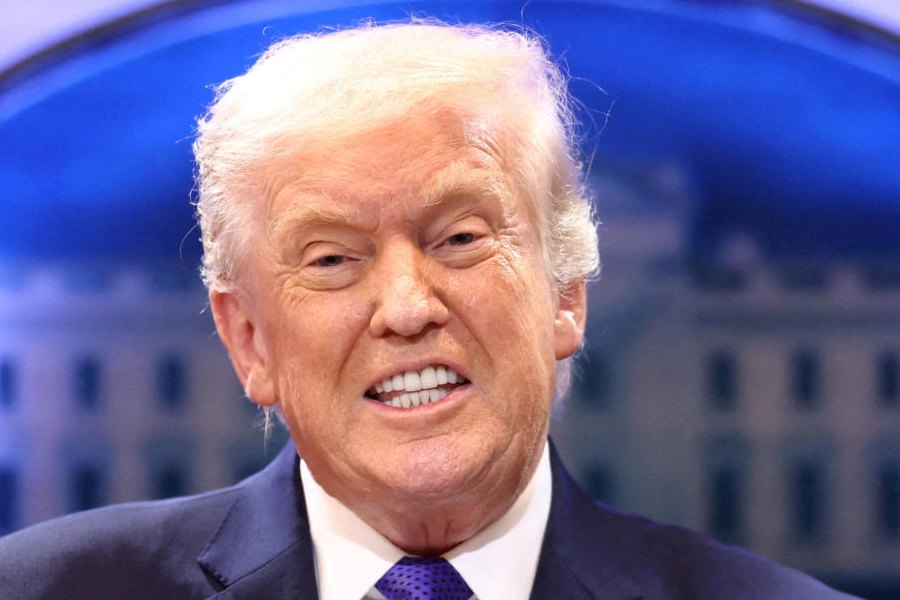 |
| All Souls College, Oxford |
Two memoirs by Indian scholars who spent many years at Oxbridge have recently appeared. The author of The World in Our Time (2011), Tapan Raychaudhuri, retired from Oxford in 1993 as a professor of Indian history, while Fifty Years of Indian Archaeology (1960–2010): Journey of a Foot Soldier (2012) chronicles the professional life of Dilip Chakrabarti, who stepped down in 2008 as a professor of South Asian archaeology in Cambridge.
Oxbridge professorships are among several threads common to their lives. Both these Big Bongs (an acronym for upper-class Bengalis) studied at Calcutta’s Presidency College, which in its heyday attracted the best minds of Bengal. They later taught at Calcutta University and the University of Delhi. Their writings provide a window into the deterioration in Indian university life over the past half-century. Their experiences at the department of history at Delhi University, for instance, are remarkably similar. In 1971, Raychaudhuri as the head of that department, had hoped to build it up as a liberal place by bringing in scholars of different orientations — in the hope that this would stimulate new ways of looking at history. What he had not bargained for was the power that was exercised by what he describes as the school “of politically radical thought” that then dominated historical research. This was a firmly entrenched group in Indian academia, “very reluctant to let in people they did not agree with”. What Raychaudhuri points towards Chakrabarti actually discusses in some detail. He names many campus goons of Leftist orientation in the University of Delhi in those days and the various ways in which they created a vast spider-web of patronage. Like Raychaudhuri, Chakrabarti’s tirade is not against all academics of Leftist orientation. He speaks with great affection about Left leaning teachers like Tripta Wahi and Vijay Singh — anti-establishment to their bones — who consistently worked against the despots who lorded over the history department in the 1970s and 80s.
This contrasts with the authors’ descriptions of outstanding teachers in Calcutta from the 1940s to the 1960s, of Bengal’s tradition of historical research, and of the range of English books that educated Bengalis once read. Chakrabarti’s account of the Hooghly Mohsin College at Chinsurah, where he spent his intermediate years in the 1950s, wonderfully captures the ambience of the college campus with its krishnachura trees, screeching parrots and a large balcony overlooking the river which sometimes doubled as a classroom, while his admiration for its well-stocked library evokes an era when district colleges took pride in having good libraries. Raychaudhuri’s description of the many libraries in Barisal town — private ones, college and school collections and those of religious foundations like the Ramakrishna Mission and Shankar Math — also tells us a great deal about the importance of learning and scholarship in another part of the then undivided Bengal (Barisal happened to be home to some of India’s leading historians like H.C. Raychaudhuri and S.N. Sen). Later, to Chakrabarti’s own library, the footpaths of Calcutta’s College Street seem to have yielded second-hand copies of Rudyard Kipling and various volumes penned by the archaeologist, Gordon Childe. As for the landed intelligentsia to which Raychaudhuri belonged, they were huge admirers of Persian, Sanskrit and Bengali books as also a range of English texts. His grandfather’s bookshelves were stuffed with the great works of English literature and those of philosophers like Jeremy Bentham and David Hume.
Raychaudhuri also vividly captures the idealism of the early days of independence, most movingly in his description of the overpowering impression that Maulana Abul Kalam Azad made on him. This was when Raychaudhuri briefly worked as the acting director of the National Archives in New Delhi. When he first met him, he tells us, he felt as if he was in the presence of a Mughal emperor. But the advice that the Maulana offered to him was strongly nationalistic: “I was not a bureaucrat, he said, but a servant of the people. Even the most mundane work I had to do was service to the nation which had at last come into its own. This awareness could transform the quality of one’s work and one’s life, he said.... I knew he was speaking, not as my minister but as my leader, a man who had given his entire life to the nationalist cause and suffered greatly in consequence.” It left Raychaudhuri feeling that if in the days of the nationalist movement, the Maulana had asked him to risk his life, he would have obeyed without hesitation. This charisma is all too rare in our leadership. I have, in fact, yet to meet the head of a national institution of learning and research who has spoken in this vein about his present political bosses.
Upper-class Bengalis who migrate to Oxbridge are sometimes derided for being more royalist than the king, so there is some anticipation that the real juice of these memoirs will gush when the Big Bong reaches the Promised Land. This is belied by both: far from being replicas of the inimitable Nirad C. Chaudhuri, Raychaudhuri and Chakrabarti recognize their ambiguous status in Britain’s academic system. Raychaudhuri finds Oxford “a major centre of empire worship” and is dismayed by the ignorance, even among radical colleagues, of the empire’s connection with bloodshed: one of them “had never heard of Britain’s exploitative role” till he visited India, though “he had studied the history of Britain and her empire at Oxford”. Chakrabarti is justifiably aggrieved for a different reason: despite international recognition as South Asia’s leading archaeologist, he was never made a college fellow nor even director of study. Some two decades in Cambridge leave him looking from the outside at a glass case forged by a peculiarly English variety of academic insularity whereby all scholars are proclaimed equal but some treated as more equal than others.
So, does Oxbridge treat non-English colleagues worse than the good American university? Raychaudhuri, like Chakrabarti, believes so. He recounts the experience of the Bengali philosopher, B.K. Matilal, Spalding Professor at Oxford in the mid 1970s, whose Indian-English accent, irrelevant during his teaching years in Canada (where he achieved his international fame), got in his way at All Souls. Here Matilal was deliberately made to feel alien, which “throws light on a deplorable side of life in this university, the fact that some members of this august institution lack elementary civility”.
A third Indian academic’s memoir chimes implicitly with the earlier two. Padma Desai, professor of economics at Columbia, praises the liberal atmosphere of American universities in Breaking Out: An Indian Woman’s American Journey (2012). The texture of Desai’s recounting is qualitatively different in that she uses her memoir to articulate her inner demons, and one hopes that she has come to terms with them. Importantly, hers is a long journey of liberation from an unhappy marriage to a manipulative philanderer, made bearable by the patience and love of her suitor (and now husband), the celebrated economist, Jagdish Bhagwati, who is actually the real, possibly unintended, hero in her story. Professionally, she navigated the unhappiness of those early years because of academic acceptance in the United States of America whose surroundings she found to be “liberating, energizing and equilibrating”.
Personal circumstances form a vital fault line in how academics remember their lives and careers. One wonders whether the biggest of all Oxbridge Bongs, Amartya Sen, agrees with the tone of these texts and if not, whether we will be treated to his memoir that may well contradict these tomes. But certainly, there is a PhD waiting to be done on Oxbridge’s upper-crust strategies to save itself from third worldlings with the wrong accent — a variety of snootiness from which the Ivy League seems relatively free.










